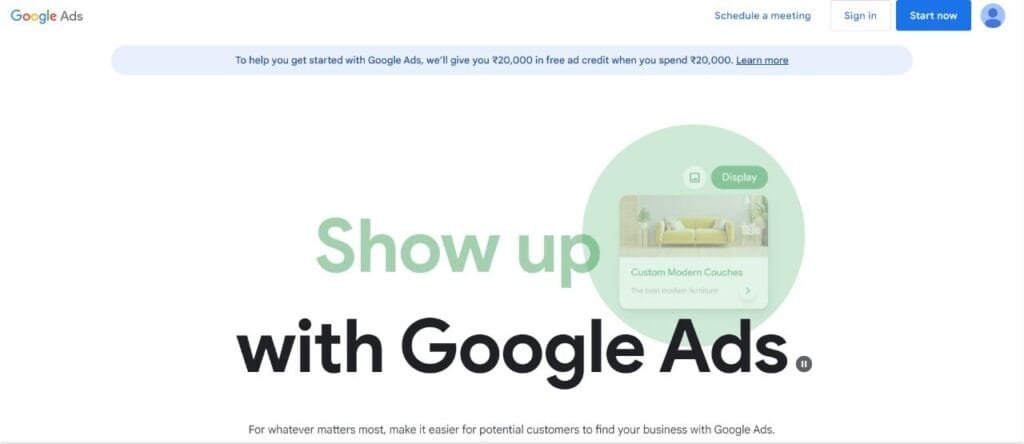In today’s digital world, startups face fierce competition. Not only do they have to offer standout products or services, but they also need to be easily found online. The game becomes even more complex when a startup wants to target a local audience. That’s where local SEO (Search Engine Optimization) comes into play.
Local SEO is a specialized subset of traditional SEO. It’s focused on optimizing a website to be found in local search results. If done right, local SEO can place your startup on the map (quite literally!) and in front of the very people you wish to serve. A critical component of local SEO is local keyword research. This article delves deep into the art and science of local keyword research to help startups amplify their local digital footprint.
Why Local Keyword Research is Crucial for Startups
- Localized Customer Insights: Every locale has its unique lingo, concerns, and preferences. By tapping into local keywords, startups can better understand what their local audience is looking for.
- Higher Conversion Rates: Local searches often have higher intent. For instance, someone searching for “vegan bakery in Portland” is likely more prepared to make a purchase than someone just searching for “vegan bakery.”
- Staying Ahead in the Local Competition: Big corporations might dominate national search results, but with effective local keyword research, startups can carve out their niche in the local market.
- Cost-Effective Marketing: A focus on local keywords often means startups can achieve better results with a smaller budget. They are targeting a more defined audience, so their marketing efforts can be more precise.
Unveiling Market Gaps and Opportunities
Local keyword research is not just about understanding what your local audience is searching for; it’s about uncovering hidden market gaps and opportunities. By analyzing the nuances of local search queries, startups can identify unmet needs or poorly serviced areas within their local markets.
This insight allows for the strategic positioning of products or services to fill these gaps, offering a clear competitive edge. The art lies in not just finding the right keywords but in interpreting the intent behind these searches to unveil opportunities that others might overlook.
Building a Locally Relevant Brand Narrative
A startup’s brand narrative should resonate deeply with its local audience. Through targeted local keyword research, startups can craft a brand story that speaks the language of the local populace, addressing their specific needs, desires, and cultural nuances.
This approach fosters a stronger emotional connection between the brand and its local community, enhancing brand loyalty and advocacy. It’s about weaving the local lexicon, landmarks, and lifestyles into your brand’s digital presence, making your startup not just a business but a recognizable part of the local landscape.
Strategic Alignment with Local Consumer Trends
Consumer trends can vary significantly from one locality to another. Local keyword research offers a lens through which startups can view and analyze these trends, allowing them to tailor their marketing strategies accordingly.
This strategic alignment ensures that marketing efforts are not just seen but are also relevant and appealing to the local audience. Whether it’s a seasonal product demand, a local festival, or a cultural event, being in tune with local trends through keyword insights can place your startup at the heart of local consumer activities.
Enhancing Localized User Experience
The user experience on your startup’s website should reflect an understanding and appreciation of local sensibilities. By integrating local keywords into the website’s content, from the navigation to product descriptions and blog posts, startups can create a more personalized user experience.
This strategic approach goes beyond SEO; it’s about making every visitor feel seen and understood, increasing the chances of engagement and conversion. A localized user experience strengthens the bond between your brand and its local audience, making your digital presence a welcoming space for them.
Fostering Community Engagement and Loyalty
At the core of every successful local SEO strategy is the ability to engage and build a loyal community. Local keyword research is pivotal in identifying the topics, concerns, and interests that matter most to your local audience.
By addressing these areas in your content strategy, you can foster a sense of community and belonging. Engaging with local issues, supporting local causes, and celebrating local successes can transform your startup from an outsider to an integral part of the community fabric.
Starting with Basics: What is Local Keyword Research?
Local keyword research is the process of finding search terms that people use when looking for businesses or services in a specific area. These keywords often include the name of the city, town, or locality. For instance, “yoga classes in Brooklyn” or “dog groomers in Miami.”
Unlike general keyword research, which focuses on broader terms, local keyword research zeroes in on geo-specific queries. The goal is to find terms that potential customers in your target area might use when searching for the products or services you offer.
Integrating Local Keyword Research into Business Strategy
Local keyword research should not be an isolated activity but an integral part of your overall business strategy. This approach ensures that the insights gained directly influence product development, marketing, and customer service.
Understanding local search trends can guide startups in tailoring their offerings to meet the specific needs and preferences of their target market. It’s about aligning every facet of your business with the local culture and consumer behavior, ensuring that your products or services are not just visible but also highly relevant to the local audience.
Advanced Techniques for Local Keyword Discovery
Beyond basic keyword tools and competitor analysis, there are advanced techniques that can uncover deeper insights into local search behavior. Engaging with local communities through forums, social media groups, or local events can provide firsthand understanding of the language and queries your target audience uses.
Additionally, leveraging local news outlets and publications can offer clues to trending topics and concerns in the community, further refining your keyword strategy.
The Synergy Between Offline and Online Insights
A unique angle to enhance your local keyword research involves bridging the gap between offline and online insights. Interaction with local customers in a physical setting, such as a brick-and-mortar store or local events, can yield valuable keyword ideas that purely online research might miss.
This dual approach allows startups to capture the complete essence of their local market’s language, integrating it into their online presence for a seamless user experience across all touchpoints.
Crafting a Dynamic Local Keyword Portfolio
A static list of keywords won’t suffice in the ever-evolving local market landscapes. Startups need to develop a dynamic keyword portfolio that adapts to changes in local search behavior, seasonal trends, and shifting market dynamics.
Regularly updating your keyword list based on ongoing analysis and feedback loops with your target audience will keep your SEO efforts responsive and effective. It’s about being agile, allowing your local SEO strategy to evolve as rapidly as the market does.
Leveraging Local Sentiment for Keyword Enrichment
Understanding the emotional undertones and sentiment within local search queries can offer an additional layer of sophistication to your keyword strategy. This involves going beyond the words themselves to grasp the intent and emotional drivers behind local searches.
Are people looking for a quick solution or a lasting experience? Do they value sustainability, community involvement, or convenience? Tapping into these sentiments can guide not only your keyword selection but also the tone and content of your digital presence.
Steps to Conduct Effective Local Keyword Research
- Brainstorm Basic Keywords: Start by listing the primary terms associated with your business. For a coffee shop, this might include “coffee,” “espresso,” “cappuccino,” and so on.
- Add Geographical Modifiers: Once you have your basic list, add geo-specific terms. Our coffee shop example might now have keywords like “coffee shop in Seattle” or “best cappuccino in Seattle.”
- Use Keyword Research Tools: Tools like Google’s Keyword Planner or SEMrush can provide insights into search volume, competition, and even suggest related terms. Input your geo-modified keywords and see what comes up.
- Analyze Local Competitors: Look at businesses similar to yours in your target area. What keywords are they targeting? Tools like Moz’s Link Explorer can provide insights into your competitors’ keyword strategies.
- Consider Local Events and Trends: Does your city have a yearly marathon? Or perhaps a renowned film festival? These events might influence local search terms. For instance, our Seattle coffee shop might benefit from targeting “coffee near Seattle marathon route.”
Avoiding Common Pitfalls in Local Keyword Research
While the above steps sound straightforward, there are common pitfalls startups should be wary of:
- Ignoring Long-Tail Keywords: These are longer, more specific search queries. They might have lower search volumes, but they can be less competitive and often have higher conversion rates.
- Forgetting About Voice Search: With the rise of voice-activated devices, people are now “speaking” their searches. This often means more conversational and locally focused queries.
- Over-Optimizing for Location: While it’s essential to include geo-modifiers, don’t cram them everywhere. It’s crucial for content to sound natural and be genuinely useful to the audience.
The Role of User Intent in Local Keyword Research
User intent, or the reason behind a search query, is pivotal. It informs not only the kind of content you should produce but also how you structure and optimize it. For local businesses, understanding user intent can mean the difference between a website visit and a foot in the door.
For instance, consider these two queries: “history of coffee” and “best coffee shops near me.” The first is informational, indicating the searcher is looking for information. The second is transactional; the searcher is likely looking for a place to grab a cup of joe.
For startups, this distinction is vital. By targeting keywords with strong transactional intent, they can ensure they’re capturing an audience ready to engage or buy.
Local Search Trends and Seasonality
Every locality will have its ebbs and flows in search volume based on various factors like seasons, festivals, or yearly events. Startups need to stay attuned to these variations and adjust their keyword strategies accordingly.
For instance, a startup selling winter gear in Aspen might see a surge in local search volume as winter approaches. Recognizing and capitalizing on these trends can lead to significant returns.
Leveraging Local Reviews and Testimonials
Here’s a little secret: Reviews and testimonials can be gold mines for local keyword research. Customers often use specific terms or phrases that potential customers might also use when searching.
By regularly monitoring and analyzing the language in your local reviews, you can identify potential keywords or phrases to incorporate into your content. Plus, positive reviews and testimonials can be leveraged to boost credibility and trust, further enhancing your local SEO efforts.
Integrating Local Keywords into Your Content Strategy
Merely identifying local keywords isn’t enough. They need to be seamlessly integrated into your content to be effective. Here are some places to consider:
- Webpage Titles and Meta Descriptions: These are prime real estate for local keywords. They not only help with SEO but also influence whether someone clicks on your link.
- Website Content: This includes your homepage, product or service pages, and especially your blog. Regularly publishing locally-relevant content can establish your startup as a local authority.
- Google My Business Listing: Ensure that your business description and services sections are optimized with your local keywords.
- Image Alt Text: If you’re using images on your site (and you should be!), the alt text is another place to incorporate local keywords naturally.
Measuring the Impact of Your Local Keyword Strategy
Like all marketing efforts, it’s essential to measure and analyze the effectiveness of your local keyword strategy.
- Track Your Rankings: Use tools like Google Search Console to monitor where you stand for your targeted local keywords.
- Analyze Web Traffic: Google Analytics can provide insights into how much traffic your website receives from local search queries.
- Conversion Rates: More traffic is great, but are those visitors taking desired actions? Track conversions to ensure your local keyword strategy isn’t just bringing in visitors, but the right kind of visitors.

Related: Check out our free SEO suite

Localized Landing Pages: A Secret Weapon
For startups operating in multiple localities or aiming to capture neighboring markets, localized landing pages can be a game-changer. These are pages tailored to specific towns, cities, or regions. They not only allow you to target local keywords effectively but also cater to the local audience’s nuances and preferences.
Tips for creating localized landing pages:
- Unique Content: Google frowns upon duplicate content. Ensure that each localized page offers unique value and isn’t just a copy-paste job with the location name swapped out.
- Local Testimonials: Featuring testimonials from local customers can enhance trust and relevance.
- Localized Imagery: Use images relevant to the specific location, be it landmarks or local events, to make the page resonate more with the audience.
Harnessing Social Media for Local Keyword Optimization
Social media isn’t just about brand awareness or engagement. It can be a potent tool for local SEO when used correctly.
- Geo-tagging Posts: Platforms like Instagram allow businesses to tag their location. This not only alerts local followers but also boosts visibility for local searches.
- Local Hashtags: Incorporate local hashtags related to your business or industry. For instance, a bakery in Chicago might use #ChicagoBakery or #WindyCitySweets.
- Engage with Local Influencers: Collaborating with local influencers can help you tap into their local audience and increase your brand’s local relevance.
Mobile Optimization and Local Search
In the age of smartphones, mobile optimization isn’t optional. Many local searches happen on-the-go, with users looking for nearby services or businesses.
- Responsive Design: Ensure your website looks and functions well on mobile devices. Users are less likely to engage with a site if it’s hard to navigate on their phones.
- Quick Load Times: Mobile users are often impatient. If your site takes too long to load, you might lose a potential customer.
- Click-to-Call and Maps Integration: Allow mobile users to call your business with one click or open their map application to find directions to your location.
Embracing the Mobile-First Indexing Approach
Google’s shift to mobile-first indexing means that the mobile version of your website becomes the primary version for indexing and ranking. Startups need to embrace a mobile-first mindset in designing their online presence.
This goes beyond responsive design to consider the mobile user’s experience from the ground up. Every aspect of your site, from navigation to content layout, should be optimized with the mobile user in mind, ensuring fast, efficient, and enjoyable interactions that cater to the on-the-go nature of local searches.
Leveraging Progressive Web Apps for Local Engagement
Progressive Web Apps (PWAs) offer a next-level mobile experience by combining the best of web and mobile app features. For startups, PWAs can significantly enhance local search visibility and engagement.
They allow for faster loading times, offline access, and an app-like experience without the need for users to download anything from the app store. Implementing PWA technology can improve user engagement, keep your startup top-of-mind, and provide an edge in local SEO by offering an exceptional mobile user experience.
Optimizing for Mobile User Intent
Understanding and optimizing for the mobile user’s intent is crucial in tailoring your local SEO strategy. Mobile searches often indicate higher intent to take action, such as visiting a store or making a purchase.
Therefore, your mobile site should prioritize content and features that facilitate these actions. Include clear and accessible calls to action, such as “Call Now,” “Directions,” or “Book Appointment,” prominently on your mobile site. Additionally, ensure that your contact information is easily accessible and clickable, making it effortless for mobile users to connect with your startup.
Enhancing Local Signals through Mobile Features
Mobile devices offer unique features that can enhance local signals for SEO, such as location services and NFC (Near Field Communication). By integrating these features, startups can offer personalized experiences based on a user’s current location, further aligning with local search intent.
Encourage users to enable location services for personalized content, offers, or notifications relevant to their locality. Such personalization not only improves user experience but also strengthens your site’s local relevance signals to search engines.
Implementing AMP for Faster Loading Times
Accelerated Mobile Pages (AMP) is a project designed to ensure fast loading web pages for mobile users. For startups focusing on local SEO, implementing AMP can significantly reduce bounce rates and improve engagement.
Pages that load almost instantaneously keep potential customers engaged, providing a smooth pathway from search to interaction with your business. While AMP implementation requires careful consideration of your site’s features and content, the benefits in mobile search performance and user satisfaction can be substantial.
Staying Updated: The Fluid Nature of Local SEO
It’s essential to understand that local SEO isn’t a “set it and forget it” endeavor. Search algorithms, local competition, and user behavior continually evolve.
- Regularly Audit Your Keywords: What worked six months ago might not be as effective today. Regularly review and refresh your keyword strategy.
- Stay Updated on Algorithm Changes: Google frequently updates its search algorithm. Startups must stay informed and adjust their strategies accordingly.
- Feedback Loop: Engage with your local customers and solicit feedback. They can offer insights that no tool can provide, helping refine your local SEO strategy.
Understanding Local Pack and How to Rank There
When you conduct a localized search on Google, you’ve probably noticed the box that shows a map on top and three local businesses listed below. This is called the Local Pack, and securing a spot here is prime real estate for any startup.
Strategies to Rank in the Local Pack:
- Complete Google My Business Profile: The more information you provide on your GMB listing, the better. This includes business hours, photos, and prompt responses to reviews.
- Garner Positive Reviews: Encourage satisfied customers to leave positive reviews. Not only do they influence potential customers, but they also signal to Google the authenticity and quality of your business.
- Local Backlinks: Backlinks from local websites, like local news outlets or local bloggers, can significantly boost your chances of ranking in the Local Pack.
The Power of Local Content Creation
Startups can benefit immensely from creating content that resonates with the local audience.
- Local News and Events: Covering local news or events related to your industry can position your startup as an active member of the community.
- Interviews with Local Figures: Collaborate with local personalities or businesses. This can offer fresh content while increasing your local relevance.
- Local Guides: If it aligns with your business, creating local guides can be a great way to attract search traffic. For instance, a local coffee shop might write about “Top 10 Must-Visit Spots in [City].”
Engaging in Local Partnerships
Teaming up with other local businesses can be a win-win for both parties.
- Cross-Promotions: Share each other’s businesses on social media, newsletters, or even in-store.
- Joint Events: Host joint local events or workshops. This not only boosts visibility but can also be a great way to target a new audience.
- Shared Content Creation: Guest post on each other’s blogs or websites. This can be a great way to gain authoritative local backlinks.
Optimizing for ‘Near Me’ Searches
With the rise of mobile search, there’s been an exponential increase in ‘near me’ queries. For startups, this presents a golden opportunity.
- Ensure NAP Consistency: NAP stands for Name, Address, and Phone Number. Ensure this information is consistent across all online platforms.
- Optimize for Voice Search: ‘Near me’ queries often come through voice search. Make sure your content is optimized for conversational queries.
- Use Schema Markup: This is a type of code that helps search engines better understand the content of your webpage. For local businesses, using Local Business Schema can provide search engines with more detailed local information about your business.
Understanding the ‘Near Me’ Searcher’s Journey
The journey of a ‘near me’ searcher often begins with a non-branded, convenience-driven query, fueled by immediate needs. Startups need to map out this journey, from initial search to the final conversion, to optimize each touchpoint effectively.
Understanding the context and intent behind ‘near me’ searches is crucial for tailoring content and features that meet the searcher’s needs at the right moment. This requires a blend of market research and customer feedback to pinpoint exactly what drives local searches for your industry.
Geo-Targeting and Personalization Tactics
Geo-targeting goes beyond just including city or neighborhood names in your keywords. It involves creating content and campaigns that are hyper-relevant to the searcher’s location and current context.
Personalizing content based on local weather conditions, events, or holidays can make your startup stand out in ‘near me’ searches. Implementing geo-targeted ad campaigns, personalized email marketing based on local user segments, and dynamic content on your website can significantly increase your relevance and visibility in these searches.
Building a Local Brand Ecosystem
For startups, establishing a strong local brand ecosystem is vital for optimizing ‘near me’ searches. This means ensuring your brand is consistently represented across all local directories, social media platforms, and review sites.
Each platform offers a unique opportunity to enhance your local presence and should be meticulously optimized with up-to-date NAP (Name, Address, Phone number) information, engaging descriptions, and high-quality visuals. Encouraging customers to share their experiences on these platforms further amplifies your local relevance and visibility.
Leveraging Local Structured Data Markup
Structured data markup is a powerful tool for telling search engines exactly what your content is about and how it should be categorized. For ‘near me’ search optimization, using local business schema markup can significantly boost your visibility.
This includes marking up your site with specific tags for your business name, address, phone number, business hours, and more. Implementing schema for local events, offers, and services can also enhance your presence in rich search results, making your startup more likely to be chosen by local searchers.
Prioritizing User Experience for Local Visitors
Optimizing for ‘near me’ searches extends into providing an exceptional user experience once searchers land on your website. This involves ensuring that your site is not only mobile-friendly but also localized to meet the expectations and needs of visitors.
Features such as an easy-to-use store locator, localized content, and fast, seamless navigation are crucial. Additionally, providing clear calls to action and simplifying the conversion process for local services or products can significantly improve the effectiveness of your ‘near me’ search optimization.
The Importance of User Experience (UX) in Local Search
User experience plays a pivotal role in local SEO. If a visitor has a positive experience on your site, they’re more likely to engage with your business.
- Mobile-Friendly Design: As reiterated, ensure your website is responsive and user-friendly on mobile devices.
- Intuitive Navigation: Make it easy for visitors to find what they’re looking for. This includes a clear menu, a search function, and a logical flow to your content.
- Clear Calls to Action (CTAs): Especially for local businesses, CTAs like “Visit Us Today” or “Call Now for a Free Quote” can drive user engagement and conversions.
Crafting a Locally-Optimized Website Architecture
A well-structured website architecture is foundational to an excellent user experience, making it easy for both users and search engines to navigate your site. For startups looking to excel in local search, the architecture must be optimized to reflect local SEO strategies.
This includes creating location-specific pages when applicable, which are easily accessible through a logical and intuitive site hierarchy. Each location page should offer unique, valuable content tailored to the local audience, ensuring that users feel seen and understood, which in turn, boosts engagement and retention.
Implementing Intuitive Local Search Functionality
For startups with a physical presence or localized services, integrating an intuitive local search functionality on your website can dramatically enhance the user experience.
This means more than just a basic search bar; it involves sophisticated features such as auto-complete suggestions for local areas, filters by services or products specific to locations, and interactive maps.
Such functionality not only aids in user navigation but also signals to search engines your site’s relevance to local searches, thereby improving your SEO standing.
Personalizing the User Experience Based on Location
Personalization is key to standing out in today’s competitive digital landscape. For local search optimization, personalizing the user experience based on the visitor’s location can be a game-changer.
This can include displaying location-specific offers, highlighting local events, or even personalizing greetings based on the local time of day. Leveraging geolocation data to tailor the website experience not only improves engagement but also strengthens your startup’s connection with the local community, encouraging loyalty and word-of-mouth referrals.
Enhancing Mobile Responsiveness for Local Audiences
Given the prominence of mobile devices in local searches, optimizing for mobile responsiveness is non-negotiable. However, beyond basic responsiveness, startups should aim to perfect the mobile user experience specifically for their local audience.
This involves understanding and implementing mobile design best practices such as easy-to-tap buttons, rapid loading times, and mobile-friendly forms. Additionally, consider the mobile content and its relevance to on-the-go users, focusing on immediacy and convenience, which are often priorities for mobile local searches.
Prioritizing Accessibility in Local UX Design
Accessibility is a crucial, yet often overlooked, aspect of UX design that has significant implications for local search optimization. Ensuring your website is accessible to all users, including those with disabilities, not only broadens your audience but also improves your site’s SEO.
This includes implementing alt text for images, ensuring navigability via keyboard, and using clear, readable fonts. Accessible design showcases your startup’s commitment to inclusivity, positively impacting your brand perception and customer base growth in the local community.
Conclusion
In concluding our deep dive into the critical role of local keyword research in bolstering a startup’s SEO strategy, it’s clear that mastering this aspect is not merely a tactic, but a fundamental building block for digital success in the local sphere. The nuances of local search demand a tailored approach, blending technical SEO prowess with an intimate understanding of the local community’s heartbeat. This journey of discovery and adaptation requires startups to be both analytical and empathetic, using insights to craft experiences that resonate on a personal level with their audience.
As the digital landscape evolves, so too must our strategies, keeping pace with new technologies, changing search behaviors, and the dynamic nuances of local markets. Success in local SEO is not just about visibility; it’s about connection. It’s about being seen as a valuable, integral part of the local fabric, where your startup doesn’t just appear in search results but becomes a trusted, go-to resource for your community. Embrace the complexity, celebrate the local, and let your startup shine in the places that matter most.
Read Next
- How to use SEMrush: An Explainer
- How to use Zoho CRM: An Explainer
- How to use Tailwind for Social Media: An Explainer
- How to use SocialBee for Social Media: An Explainer
- How to use SproutSocial for Social Media: A Practical Guide






















Comments are closed.